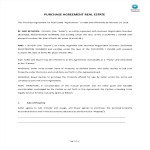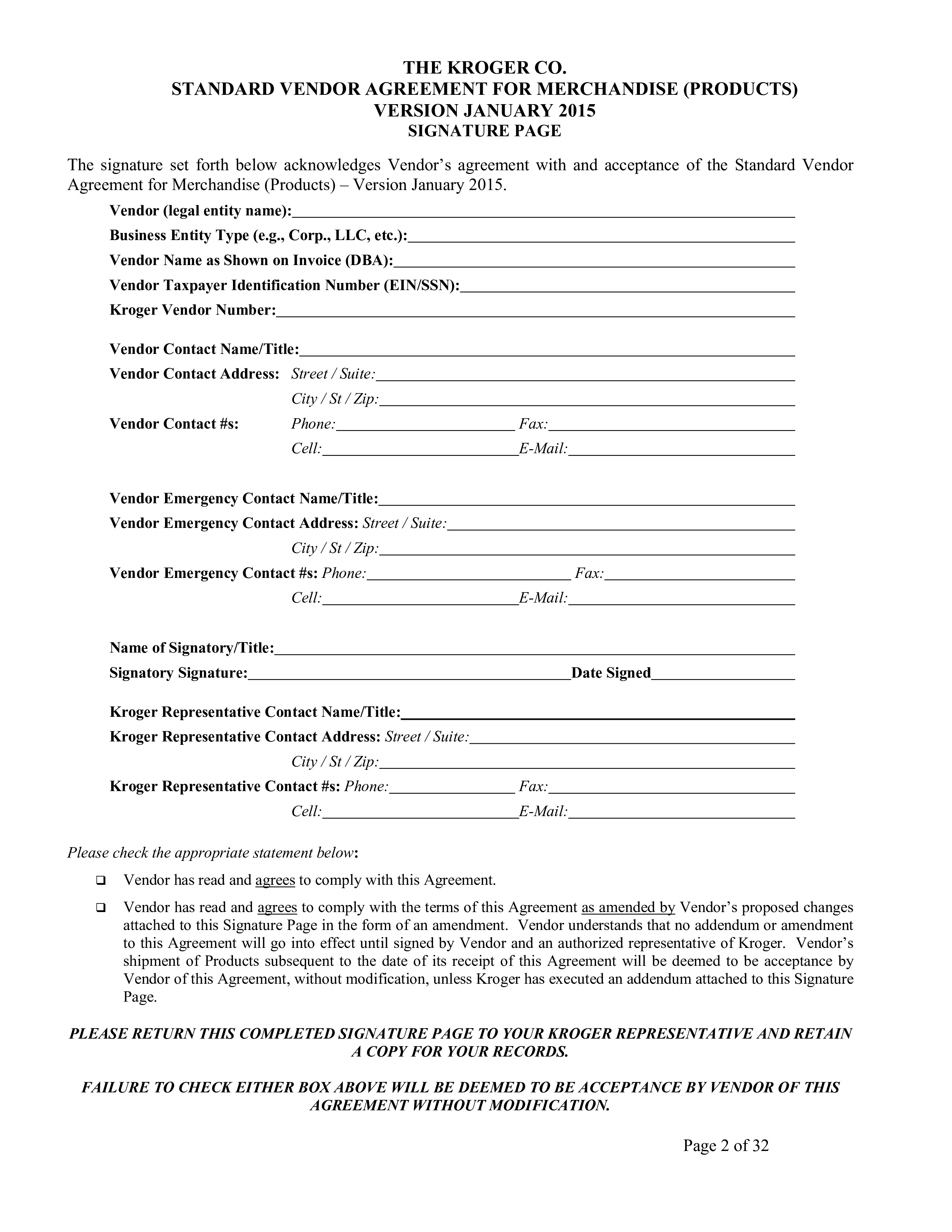Standard Vendor Agreement
Save, fill-In The Blanks, Print, Done!

Download Standard Vendor Agreement
Adobe Acrobat (.pdf)- This Document Has Been Certified by a Professional
- 100% customizable
- This is a digital download (320.96 kB)
- Language: English
- We recommend downloading this file onto your computer.
Are you looking for a Standard Vendor Agreement? How should a vendor agreement be structured? What should be included in the agreement? Our Standard Vendor Agreement template is available to download and provides a clear and concise agreement between vendors and customers. It's the perfect way to ensure that your business is protected from any potential liabilities. Download this legal Standard Vendor Agreement Template now!
A Standard Vendor Agreement, often referred to as a Vendor Contract or Supplier Agreement, is a legally binding document that outlines the terms and conditions governing the relationship between a business or organization (the buyer) and a vendor or supplier. This agreement is used when a business procures goods, services, or products from an external supplier. The primary purpose of a Standard Vendor Agreement is to define the rights and responsibilities of both parties, establish the terms of the business relationship, and protect the interests of each party.
Key components commonly included in a Standard Vendor Agreement may encompass:
- Identification of Parties: The agreement begins by identifying the parties involved, specifying the legal names and contact information of the buyer and the vendor.
- Scope of Work or Products: A detailed description of the products or services to be provided by the vendor, including specifications, quantities, and quality standards.
- Pricing and Payment Terms: Information about the pricing structure, payment terms, and the currency in which payments will be made. This section may also address issues like taxes, invoicing, and late payment penalties.
- Delivery and Shipping Terms: Details regarding the delivery schedule, shipping methods, responsibilities for transportation, and any relevant shipping costs or terms.
- Quality Assurance and Acceptance: Specifications for quality control, inspection, testing, and acceptance criteria. It may also outline the process for dispute resolution if products or services do not meet the agreed-upon standards.
- Term and Termination: The duration of the agreement, notice periods for termination, and the circumstances under which either party can terminate the contract.
- Intellectual Property Rights: Provisions related to intellectual property, including ownership of work or products developed, and any licenses or rights granted.
- Confidentiality: Clauses that require both parties to maintain the confidentiality of sensitive information shared during the course of the business relationship.
- Indemnification and Liability: Responsibilities for indemnifying each other against losses, damages, or liabilities, as well as limitations on liability.
- Insurance: If applicable, requirements for each party to maintain certain types of insurance and the minimum coverage amounts.
- Dispute Resolution: Procedures for resolving disputes, which may include mediation, arbitration, or litigation in specified jurisdictions.
- Governing Law: The state or jurisdiction whose laws will govern the interpretation and enforcement of the agreement.
- Entire Agreement: A statement that the agreement constitutes the entire understanding between the parties, superseding any prior agreements or understandings.
- Amendments and Waivers: Provisions outlining the process for making amendments to the agreement and any waivers of rights or obligations.
- Signatures: Space for authorized representatives of both parties to sign and date the agreement, indicating their consent to the terms and conditions.
Standard Vendor Agreements are essential for maintaining clear and mutually beneficial relationships with suppliers. They help prevent misunderstandings, protect both parties in case of disputes, and ensure that the business relationship operates smoothly. The terms and conditions within these agreements can vary significantly depending on the nature of the business and the specific goods or services being procured. Legal counsel is often recommended to draft or review vendor agreements to ensure they comply with relevant laws and regulations.
Download this professional legal template if you find yourself in this situation and save yourself time, and effort and probably reduce some of the lawyer fees! Using our legal templates will help you reach the next level of success in your education, work, and business! However, we still recommend you to consider consulting a local law firm in case of doubt to support you in this matter.
Do you need more? Just search on our website and have instant access to thousands of free and premium legal agreements, contracts, documents, forms, letters, etc, which are used by professionals in your industry. For example Real estate forms, Employment forms, General release bank accounts, Power of attorney, Joint Venture Agreements, Letters of intent, Last will & testament, Secrecy Agreements, Articles of Incorporation of the Company, Agreements with Accountant, Purchase contracts, Agreement for permission to sublet and much more… All business templates are easy and quick to find, crafted by legal professionals, wisely structured, ready-made, and intuitive. Pay closer attention to the template by browsing through the list. Take the time to review and choose the variety of legal templates to suit your needs… Good luck!
DISCLAIMER
Nothing on this site shall be considered legal advice and no attorney-client relationship is established.
Leave a Reply. If you have any questions or remarks, feel free to post them below.
Related templates
Latest templates
Latest topics
- Google Docs Templates
How to create documents in Google Docs? We provide Google Docs compatible template and these are the reasons why it's useful to work with Google Docs... - IT Security Standards Kit
What are IT Security Standards? Check out our collection of this newly updated IT Security Kit Standard templates, including policies, controls, processes, checklists, procedures and other documents. - Letter Format
How to format a letter? Here is a brief overview of common letter formats and templates in USA and UK and get inspirited immediately! - Google Sheets Templates
How to work with Google Sheets templates? Where to download useful Google Sheets templates? Check out our samples here. - Influencer Marketing Templates
What makes a good influencer? Check out our effective and useful Influencer Marketing Templates here!
cheese




